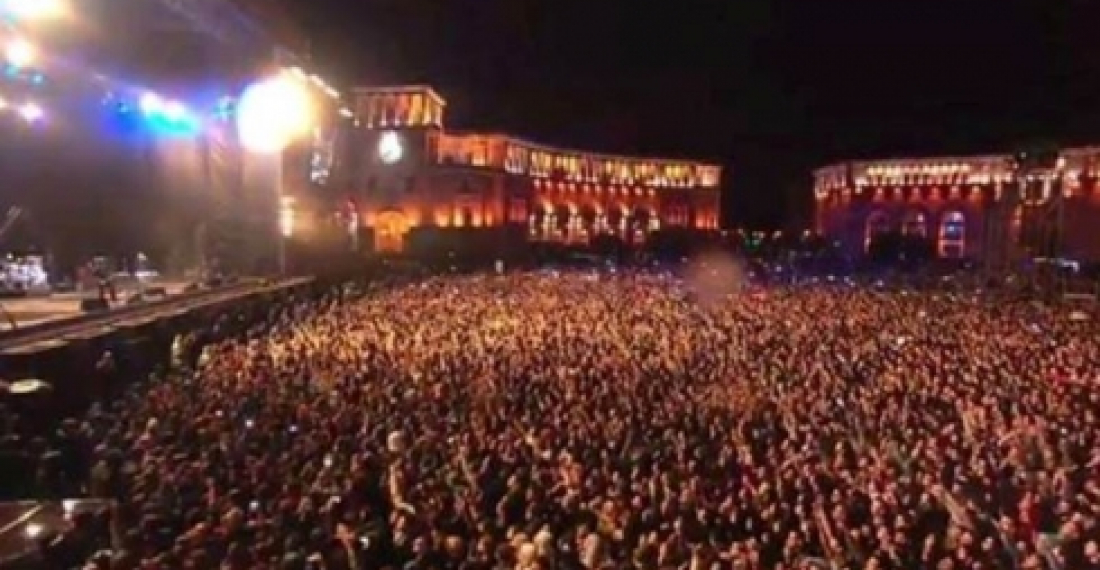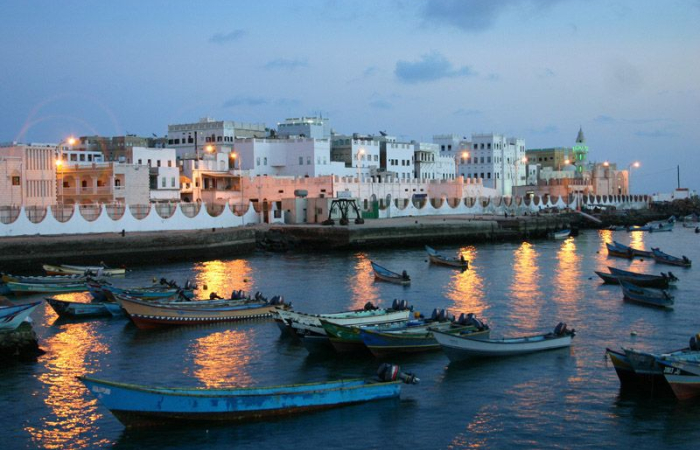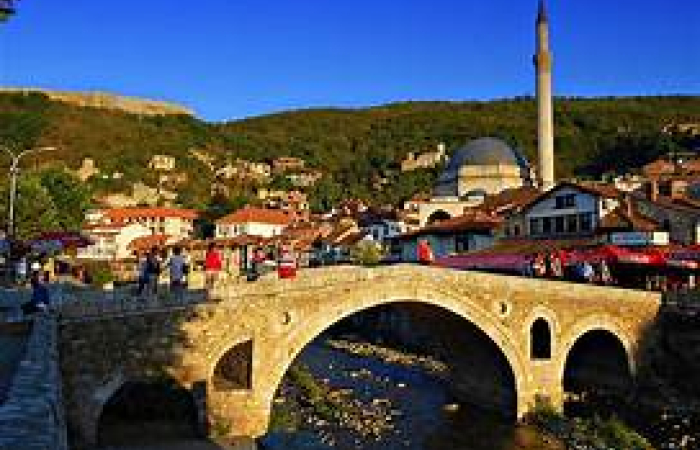In this commentary for commonspace.eu Dennis Sammut reflects on the events of this weekend in Armenia and Turkey, and says that something has changed and both sides may find that it is now time to move on.
Two episodes from World War I were remembered over the last days with great emotion, considerable dignity, and not a little political controversy.
Armenians all over the world marked the 100th anniversary of the Meds Yeghern, the great crime, or as it is often characterised, the Armenian genocide. It was on 24 April 1915 that from the suburbs of Constantinople (now known as Istanbul), to the heartlands of Anatolia, a purge of people of Armenian ethnicity started throughout the Ottoman Empire. Some were summarily executed; others died through famine and exhaustion as they were forced marched into exile.
As this dark chapter played out, another started unfolding in another part of the ailing Ottoman Empire. Allied troops, mostly from the British Empire but also from France, landed in Gallipoli, on the Western edge of the Bosporus straits in an attempt to capture Constantinople. It was a badly planned and badly executed campaign during which Turkish troops, defending the heart of their homeland, fought courageously, repelling the allied attack. The deaths of young Australians and New Zealanders in their tens of thousands defined the identity of these two nations that had hitherto been seen only as distant outposts of Britain.
From the blood and mayhem of World War 1 in Anatolia and the Levant, and the subsequent collapse of the Ottoman Empire, emerged the new Turkey - much truncated but still a strong successor state, as well as numerous smaller entities, including Armenia. World War 1 also defined thinking in the world about nationalism, the nation state and the right of nations to self-determination. It marked the end of empires in the heart of Europe, though not of imperialism.
For many people trying to make sense of these events, and understanding to what extent they were connected and to what extent they were not, has been challenging. Politicians all over the world have not helped. Over the years they tended to see these issues from the narrow perspective of immediate expediency be it geo politics - and the need to satisfy their friends and allies in Turkey or in Armenia; or domestic politics - playing to the tune of important domestic constituencies.
This year marked the centenary of both events, and it fell on round about the same day. Many would have liked to see Turkish and Armenian leaders, and the Turkish and Armenian people, marking this centenary together. Instead two, very different and opposing events were organised - one in Yerevan and one in Gallipoli. World leaders were invited to both, and had a choice to attend one or the other. Some like President Putin of Russia and President Hollande of France opted for Armenia; Others like the leaders of the nations of those who died in Gallipoli, including the prime Ministers of Australia and New Zealand, the Prince of Wales representing Britain and the Commonwealth, and the leaders of many Turkic countries, such as Azerbaijan, joined the celebrations in Gallipoli. Most world leaders stayed away from both. The international community was put on the spot, and the discomfort was noticeable.
There was much emotion during both events. Some of those present at a concert in Yerevan on the evening of 23 April claim that it was an exhilarating, life changing experience, as if the pouring rain had exorcised the ghosts of the past, allowing a new spirit of the Armenian nation born. On the whole all events were held in a dignified manner. Words were carefully chosen, not always conciliatory, but vague enough to allow room for manoeuvre.
But now that the dead have been honoured it is time to think of the living. And here both Armenia and Turkey have some tough decisions to make.
Genocide, War Crimes, or simply the harsh reality of war?
That something very bad happened to the Armenian nation in 1915 is now disputed only by the idiots and the reckless. The presence of a Turkish Minister at the service to commemorate the tragedy, held at the Armenian Patriarchate in Istanbul on Thursday (23 April 2015), and the expression of sorrow by Turkish leaders in the run up to the centennial anniversary, is a proof of that. But there remains a big discussion about how to characterise this great human tragedy. Was it genocide: i.e. was there a determined and planned attempt by one nation to exterminate another; or was it war crimes: acts that went beyond the rules of war and violated international humanitarian law; or where these simply events stemming from the chaos and confusion of war, where truth is often the first victim, and where the weak and the vulnerable are often easy prey.
Here the Turks and the Armenians remain at loggerheads. The Armenians have based all their arguments on demanding that it be called genocide, and they pulled out all the stops in the run up to the centennial to get nations, organisations, and individual personalities to recognise it as such. Their success was more than some thought, a vague Papal reference, some Parliamentary resolutions, and a lot of civil society sympathy, but less than they hoped. Does it matter? The Armenians say that closure is not possible until genocide is admitted. Since that has not happened so far it is difficult to see how it is going to happen soon. The implications are not only moral, but also legal.
Trying to determine the legal nature of what happened in 1915 one hundred years later is awkward. The holocaust against the Jews was identified and recognised as part of the settlement of World War II, and its perpetrators punished within a few years of the event, as were other war crimes of more modern times such as in Ruanda and in the former Yugoslavia.
The danger of reading history backwards
Historians are often warned, and often warn, about the danger of reading history backwards. The Paris Conference of 1919-20 should have been the place where the crimes against the Armenians should have been discussed, and where the international community could have resolved the nature of these crimes and taken steps for reparation if necessary, in the same way that it did against Germany. The conference took comfort in its decision to recognise a new Armenian state. Events in the Caucasus were not its first priority, and things were left unfinished. The new Turkish Republic and the fledgling Armenian state were pretty much left to sort out the problem on their own through war. The international community then rubber stamped the outcome.
Armenia and Turkey now have a choice. They can continue arguing on the matter, taking joy in pyric victories: will Obama say the G word or not; were there more Presidents in Gallipoli or in Yerevan; has the state assembly of never-never-land recognised the Armenian genocide? But for the sake of those who live, and their future generations this debate must now be resolved.
President Serzh Sargsyan, as well as the Turkish leaders, particularly President Erdogan and Prime Minister Davitoglu have spoken extensively on the issue in their many statements and speeches over the last few days. In all the speeches there is something for everybody - the hard liners and the moderates. Both sides say they are ready for better times, for better relations, but they give little sign as to how they propose to overcome the impasse.
Turkey has said that it is ready to open the archives to historians so the truth can be ascertained. Armenia says this is not an academic matter, and it is not enough. Probably it is not, but neither is the issue a political matter to be resolved by politicians through vague statements and resolutions. The matter at hand is a legal one, and a very precise one at that: to define the nature of the crime, if, as all evidence suggests, one has been committed, and the even more difficult task of defining the nature of the penalty if there is to be one. This legal matter can only be resolved by a mutually agreed legal body, informed by the research of historians. Turkey and Armenia need to agree about the mechanism, and the international community, having failed to do its duty one hundred years ago, needs now to offer assistance for this to happen. In other words, Armenia and Turkey need to refer this issue to a mutually acceptable international arbitration and commit themselves to abide by the decision of that body, and the international community must hold the ring and ensure that any decision is enforced. Up to now such a logical course of action seemed unattractive to the sides, but things may be changing.
The start of closure
The reason why I think this is more likely now than it was a week ago is that the centenary celebrations in Yerevan and in Gallipoli, and ancillary activities all over the world, have changed something. It was not quite closure, but in some respects they were the beginning of closure.
For the first time the number of Turks and Armenians who have used the anniversary to reach out to each other was significant.
The thousands of young Armenians attending a commemorative Rock Concert on Yerevan's Republic Square on the night of 23 April felt a sense of exhilaration, uplift, liberation. The event took a life of its own - not quite what the control-freak Komsomol boys who still call the shots in Armenia (as in other South Caucasus Republics) had planned for. The young Armenians from the diaspora and from the slums of Yerevan had at last come together. They had to a certain extent fulfilled their duty to their ancestors. They were now ready to move on. As somebody put it, "We have a country to build, let's get on with it".
Similarly the taboo about the Armenian issue in Turkey is now well and truly broken. Some may still stick to the old narrative that the Kemalist regime had spinned over decades, but Turkey's present leaders, and indeed Turkey's new generation whether Islamist or secularist, are now clearly no longer comfortable with that narrative any more.
The time for either side to seek maximalist positions is now over. The focus needs to be on finding a way forward, for in their different ways both Turkey and Armenia remain imprisoned by their past, and they cannot offer their future generations the best unless they put the issue behind them.
Here the lessons of Gallipoli are useful. The ceremonies marking the Gallipoli landings were sombre and dignified, with representatives of the belligerents - Turkey and Turkic countries, Britain, Australia, New Zealand and others - honouring together their lost sons. Gallipoli was a military folly, part of a war that should never have happened. The Gallipoli commemoration events helped to remind everybody that the tragedy of the Armenians was in fact part of a larger tragedy, and how political systems often fail humanity.
We need to learn the lessons not to repeat the past. President Obama's statement on the Armenian question, issued last week, upset both the Armenians and the Turks because it did not fit neatly in either's narrative, but it did have a clear and powerful conclusion. He said
"On this solemn centennial, we stand with the Armenian people in remembering that which was lost. We pledge that those who suffered will not be forgotten. And we commit ourselves to learn from this painful legacy, so that future generations may not repeat it."
If the events in Yerevan and in Gallipoli in the last days have helped us learn those lessons, and if they have helped both sides to start the process of moving on, then they were truly worthwhile.
Dennis Sammut is the Director of LINKS (Dialogue, Analysis and Research). He contributed this commentary to commonspace.eu. He may be contacted at dennis@links-dar.org.
source: commonspace.eu
photo: A commemorative concert by the Rock Band "System of a Down" on Yerevan's main square on 23 April 2015.






